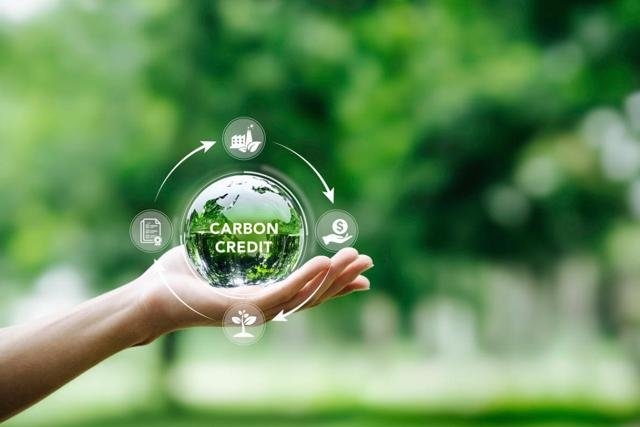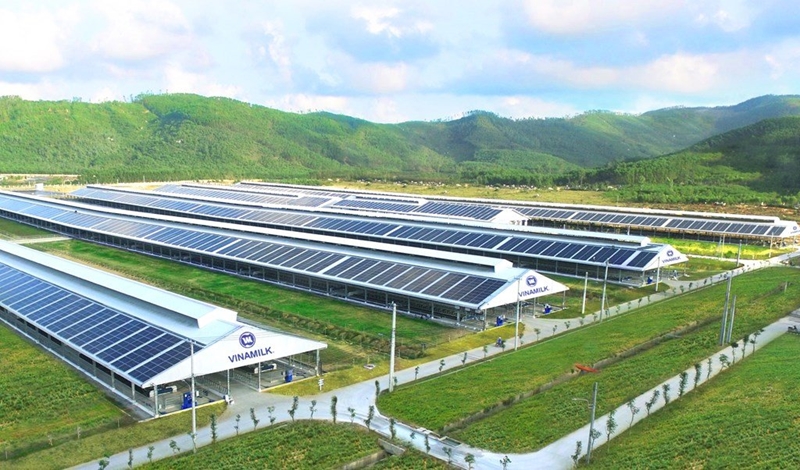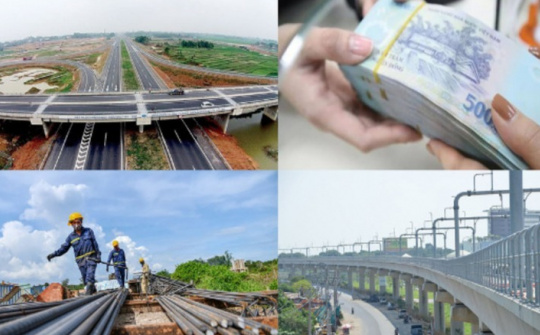 |
| Businesses have many opportunities to participate in the carbon credit market. (Photo: VnEconomy) |
Carbon market participation offers opportunities for firms
According to statistics from the United Nations Framework Convention on Climate Change, Vietnam ranked 5th among countries that create carbon credit.
According to experts, participating in the carbon credit market is both an opportunity and a challenge for Vietnamese businesses to keep pace with domestic and international markets for requirements of green production, greenhouse gas (GHG) emission reduction and sustainable development.
The carbon market admission demonstrates businesses’ commitment to sustainable development and will help enhance their image in attracting investment and customers. From there, they find that they need to innovate technology.
On the other hand, businesses have the motivation to apply advanced technology to reduce GHG emissions and improve production efficiency. The main commodity on the carbon exchange is the GHG emission quota applied to each enterprise and carbon credits as an offset commodity.
Currently, 1,912 businesses nationwide are required to inventory and report their level of GHG emissions (mainly carbon emissions) in the fields of energy, transportation, construction and waste management. In the coming time, businesses in the agricultural production sector will also have to make an inventory of emissions. In fact, the inventory of GHG emissions levels has been implemented by the above businesses since 2023, with the information provided to relevant ministries.
However, the current legal framework for Vietnam’s carbon market has not yet been completed. The carbon market development project is being submitted to the Prime Minister for approval by the Ministry of Natural Resources and Environment.According to the roadmap, the Government aims to pilot the operation of the carbon credit exchange market by 2025. By the end of 2027, it is expected to complete the development of carbon credit management regulations, pilot the implementation of carbon credit exchange and offset, and from 2028, the exchange will officially be operated.
Proactivity from businesses
 |
| Vinamilk's farms all use solar energy and biogas systems that turn cow waste into resources. (Photo: Bnews.vn) |
Realizing the great benefits from the carbon market, many businesses have actively implemented emission reduction solutions and prepared for the operation of the market. Notably, Vietnam Dairy Products Joint Stock Company (Vinamilk) has set out a specific roadmap for the Net Zero 2050 goal, including a 15% cut of greenhouse gas emissions by 2027, 55% cut and neutralization of emissions by 2035 and moving towards the Net Zero goal by 2050.
In particular, after completing the greenhouse gas inventory at its units in 2022, Vinamilk Nghe An dairy factory and Vinamilk Nghe An dairy farm have become the first units to achieve carbon neutralization according to PAS 2060: 2014 standards.
Nestlé Vietnam is also one of the pioneering enterprises in sustainable development. The group commits to reducing emissions by 20% by 2025 and reducing emissions by 50% by 2030 so that net emissions will be reduced to zero by 2050.
In 2023, the enterprise reduced emissions by 13.58% thanks to efforts to change production processes. According to Mr. Khuat Quang Hung, Director of External Relations and Communications at Nestlé Vietnam, the business is making efforts to reduce emissions across the supply chain, including the goal of using 100% renewable energy by 2025.
As a large enterprise in the textile industry with the main export market being Europe, Mr. Pham Van Viet, General Director of Viet Thang Jeans, said that the textile and garment industry is not required to declare carbon emissions. However, due to strict emission requirements from European partners, Mr. Viet's business has plans to increase the use of solar energy, as well as continue to use production equipment and production technology of the EU so emissions will stay within the allowed threshold and will not be subject to carbon tax.
In the context of developed regions in the world such as the EU, the US or now China and Japan applying carbon tax barriers to imported and exported goods, Vietnam is facing many challenges in the carbon market construction and development process. This is a challenge but also an opportunity for management agencies, organizations and businesses to transform, research and immediately apply green solutions, reduce emissions and take measures to create and accumulate carbon credit for the future./.





